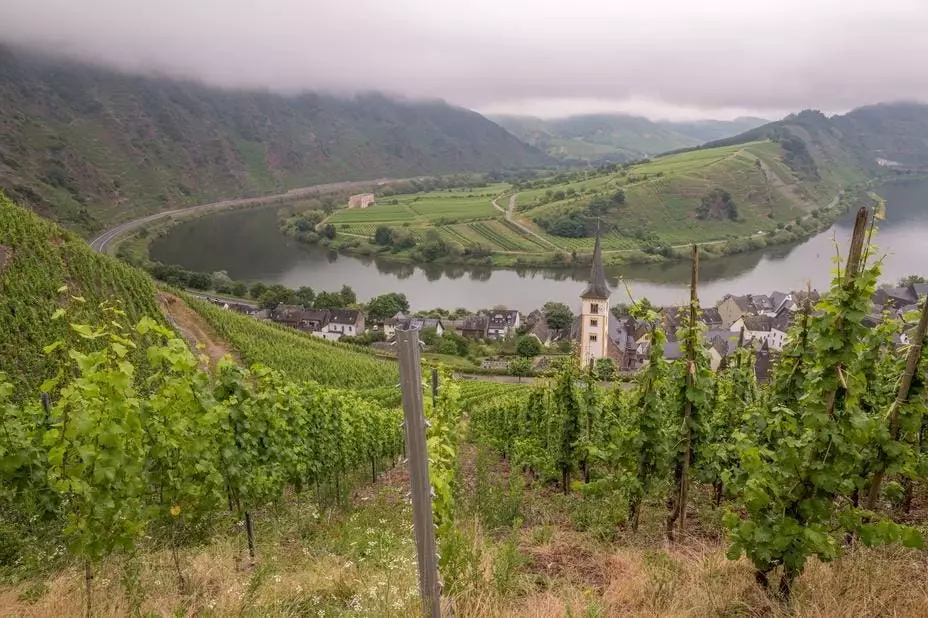Standing atop the steep slopes of the Thörnicher Ritcher Vineyard in the Mosel region, one can’t help but question the audacity of planting vineyards in such challenging terrain. However, a closer look reveals a unique microclimate that nurtures golden Riesling grapes, resulting in high-acid wines with tension and verve. This region, often referred to as a “cosmos unto itself” by wine experts, is characterized by its twisting river, slate soils, and deep-rooted traditions of small-scale viticulture.
While Mosel is known for its Riesling wines, the contemporary wine scene is far different from its historical counterparts. The first Riesling was made in the Mosel in the 15th century, evolving over time to cater to changing tastes and preferences. Today, German winemakers are revisiting traditional methods of farming and winemaking, striking a balance between sweetness and acidity in their wines. The resurgence of dry Rieslings reflects a shift towards more nuanced and sophisticated palates among consumers.
From large estates like Weingut Markus Molitor to boutique wineries such as Weingut Carl Loewen, the focus remains on sustainable viticulture practices to produce wines that reflect the unique terroir of the Mosel. By prioritizing balance and quality in the vineyard, winemakers are able to create wines with lower alcohol levels that resonate with modern trends. The collaborative spirit among the region’s next generation of winemakers fosters innovation and adaptation, ensuring the continued success of Mosel wines.
Navigating the sweetness levels of Mosel Rieslings can be a daunting task for consumers, but wine education offers a fun and delicious approach to discovering new wines. Whether through color-coded bottle capsules or the international Riesling scale, wineries are finding creative ways to communicate sweetness levels to their customers. However, some, like Weingut Schloss Lieser, prefer to let the wines speak for themselves, encouraging individual exploration and taste discovery.
With iconic vineyards and multi-generational winemaking families, the Mosel region continues to be a beacon of quality and excellence in the wine world. From the legendary Berncasteler Doctor to the innovative approaches of young winemakers like Clemens Busch, the Mosel offers a diverse range of styles and flavors for every palate. As the region undergoes a period of reinvention, there is a renewed sense of excitement and potential for Mosel Riesling to capture the hearts of wine lovers around the globe.
The resurgence of Mosel Riesling signifies a new era for German wines, one that honors tradition while embracing innovation. As consumers, it is essential to explore and appreciate the depth and complexity of Mosel wines, unlocking a world of flavors and possibilities waiting to be discovered. German wines, particularly those from the Mosel region, offer a unique and unparalleled experience that deserves recognition and celebration in the global wine landscape. Cheers to the future of Mosel Riesling!

